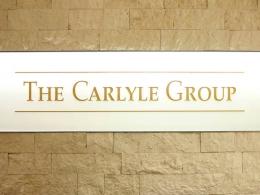After Ranbaxy Labs and Piramal Healthcare, another billion-dollar-plus deal might be in the works in the Indian pharmaceutical space. Israel’s Teva Pharmaceutical Industries Ltd, the world’s largest generic drug-maker, and Pfizer, the world’s biggest pharmaceutical company,as well as other private equity buyout firms, are eyeing Bangalore-based privately held Micro Labs Ltd, sources close to the development told VCCircle.
Privately held Micro Labs claims to be one of the first companies to start the concept of branded generics in India in the 1980s. It grossed Rs 1,400 crore in revenue and Rs 225 crore in profit for the year ended March 2011, according to VCCEdge, the financial research platform of VCCircle. The branded generics manufacturer is now seeking avaluation close to $2 billion, one source, with knowledge of the development, said.
Teva Pharma has been in active discussions with the company but valuation is proving to be a stumbling block in closing the deal. Earlier,Teva was reportedly in talks with Torrent Pharma to enter India but that deal did not materialise either. Besides Teva and Pfizer, a host of private equity players are also looking at the company, according to another source briefed with the matter.
When contacted, a Teva Pharma spokesperson replied via e-mail and commented, “Teva does not comment on market rumours in regards to its M&A activities.” Dilip Surana, CMD of Micro Labs said, “No such talks are going on.” An e-mail query sent to Pfizer spokesperson did notelicit any response till the time of writing this article.
Micro Labs was founded in 1973 by late G C Surana, a first-generation entrepreneur. The company manufactures oral solids, oral liquids andtopicals to injectables. With dedicated plants for penicillin and non-penicillin categories, Micro Labs has been ranked 21st on sales and 10th on prescription in India by IMS.
It has drug manufacturing plants at 14 production sites including 11 in and around Bangalore, and other three in Pondicherry, Goa and Baddi. Nine of these are oral formulation plants; one is an injectables unit and one is a bulk drug facility. Micro Labs has four overseas offices and more than 5800 employees across the globe. It plans to expand by setting up of units in the UK, the USA, Canada, South Africa and Japan.
At $2 billion, the firm appears to be eyeing a valuation multiple of over 7x revenues and 44x profit.
In comparison, Ranbaxy Labs is trading at 2x FY11 revenues and 12x one year trailing consolidated net profit. Among peers of similar size, Torrent Pharma is trading at $900 million market capitalisation.
Micro Labs might be eyeing a premium valuation due to its presence in the branded generics business that commands higher margins compared to ‘generic generics.’
If a deal materialises, it would mean another exit by an Indian promoter group in the pharmaceuticals space. Three years ago, Japan’s Daiichi Sankyo acquired majority stake in Ranbaxy Labs in a multi-billion-dollar deal, at high premium. And two years ago, Abbott followed with over $3 billion deal to acquire the domestic formulations business of Piramal Healthcare.
Such blockbuster deals, which gave away the control of large Indian pharma companies to global firms, had even called for putting a ceiling on foreign direct investment in the pharma industry. However, no such regulatory clamps have been put by the Indian government.
For global firms, Micro Labs could be yet another opening to expand into or enter the Indian pharma market which has been consistently growing in the 15-20 per cent range annually.
According to IMAP’s Pharma & Biotech Industry Global Report 2011, Brazil, Russia and India belong to the tier II of so called ‘pharmerging’ markets and each is expected to add $5 billion-$15 billion to the pharmaceutical market through 2013.






